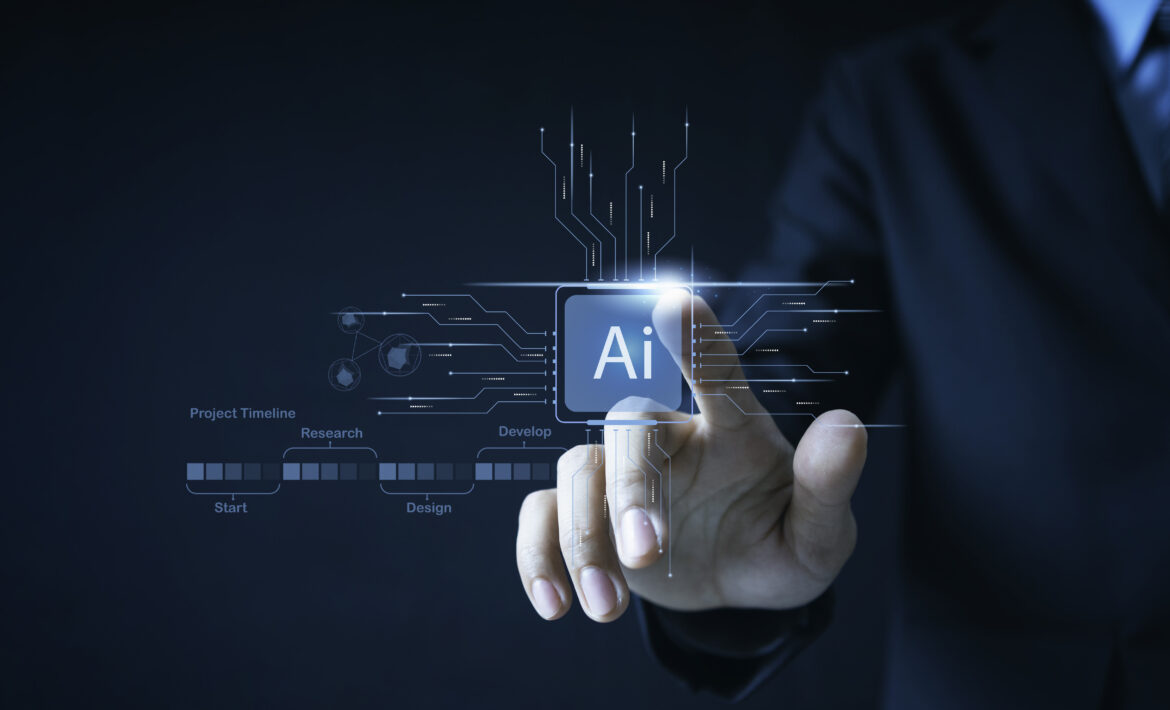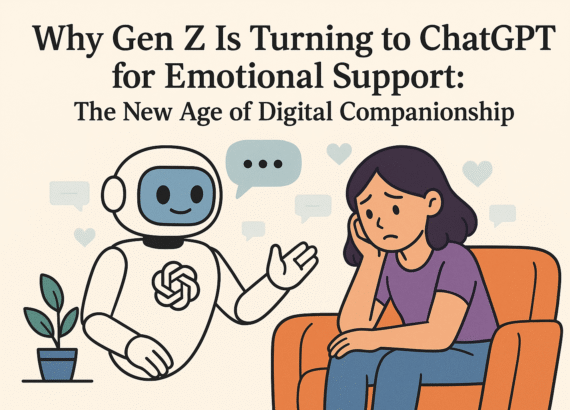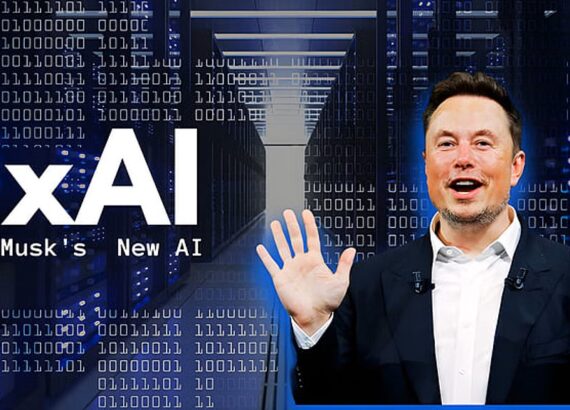15 Mind-Blowing Examples of Artificial Intelligence in Popular Culture
Artificial Intelligence (AI) has become an integral part of our lives, permeating various aspects of society, including popular culture. From the silver screen to the pages of books, video games to music, AI has captured the imagination of creators and audiences alike. This article delves into the mind-blowing examples of AI in popular culture, exploring its impact, significance, and the profound ways it has shaped our collective imagination. Join us on a journey through the realms of movies, literature, video games, music, art, sports, and entertainment as we uncover the fascinating world of AI in popular culture, contemplating its implications and envisioning its future. Explore how AI is revolutionizing various industries and shaping the future of our world.
1. Introduction: The Influence of Artificial Intelligence on Popular Culture
The Rise and Impact of Artificial Intelligence
Artificial Intelligence (AI) has become an integral part of our lives, from the virtual assistants that help us navigate our smartphones to the algorithms that power our social media feeds. However, AI’s influence extends beyond the realm of technology and into popular culture. From movies and television to literature and video games, AI has captivated audiences and sparked our imagination with its potential and possibilities.

2. AI in Movies and Television: From HAL 9000 to Ex Machine
The Evolution of AI Protagonists: From R2-D2 to Samantha
When we think of AI in movies and television, iconic characters like HAL 9000 from “2001: A Space Odyssey” and Skynet from the “Terminator” series immediately come to mind. These AI villains have sent shivers down our spines, making us question the dangers of creating machines that can think for themselves.
But AI in popular culture isn’t all about doom and gloom. Think of lovable AI companions like R2-D2 from “Star Wars” or Samantha from “Her.” These AI protagonists have warmed our hearts and made us ponder what it means to forge emotional connections with artificial beings.

3. AI in Literature: Exploring the Themes and Characters
Exploring Sentience and Identity: AI Characters in Do Androids Dream of Electric Sheep? and I, Robot
Literature has long explored the complex relationship between humans and AI. In Mary Shelley’s “Frankenstein,” the creature created by Victor Frankenstein can be seen as a metaphor for the perils of playing god and the consequences of unchecked scientific progress.
In William Gibson’s “Neuromancer,” AI takes centre stage, depicting a world where virtual reality and AI intertwine, blurring the lines between what is real and what is artificial.
Philip K. Dick’s “Do Androids Dream of Electric Sheep?” and Isaac Asimov’s “I, Robot” delve into the themes of sentience and identity, raising questions about what it truly means to be human and whether AI can possess consciousness.
4. AI in Video Games: Shaping Immersive Virtual Worlds
AI as Antagonists: Challenging Players in Boss Battles
Video games have embraced AI to create immersive and dynamic experiences. AI companions and Non-Player Characters (NPCs) accompany us on our virtual adventures, providing assistance, adding depth to the story, and making the game world feel alive.
On the other hand, AI can also be our greatest foe in the form of challenging boss battles. Whether it’s battling against artificially intelligent opponents in strategy games or facing off against sophisticated AI in first-person shooters, these encounters push our skills to the limit and keep us coming back for more.
So next time you encounter AI in popular culture, whether it’s on the big screen, in a book, or a video game, take a moment to appreciate the mind-blowing examples of artificial intelligence and the impact they have on our collective imagination. And who knows, maybe one day we’ll live in a world where AI is as fascinating and complex as our favourite fictional portrayals.

5. AI in Music and Art: Pushing the Boundaries of Creativity
Artificial Intelligence is not just limited to calculating numbers or performing tasks; it also can tap into the realm of creativity. AI-generated music and AI in visual arts are two areas where AI is redefining what is possible.
AI-generated Music: Exploring Compositional Algorithms and Collaborations
AI has the potential to revolutionize the music industry by creating compositions using complex algorithms. It can analyze vast amounts of data and learn from existing songs to generate new melodies and harmonies that are both innovative and pleasing to the ear. Additionally, AI can facilitate collaborations between humans and machines, allowing musicians to explore new creative avenues and push the boundaries of musical expression.
AI in Visual Arts: From Generative Art to Deepfake Technology
AI is making its mark in the visual arts through generative art and deepfake technology. Generative art uses algorithms to create unique and unpredictable visuals, providing artists with a new medium for self-expression. On the other hand, deepfake technology, though controversial, showcases the power of AI in manipulating and creating lifelike visual content. It raises questions about authenticity, identity, and the blurred line between reality and illusion.
6. AI in Sports and Entertainment: Enhancing Performance and Spectator Experience
Artificial Intelligence is not confined to the realm of artistic expression; it is also making waves in the sports and entertainment industries. By enhancing performance and elevating the spectator experience, AI is transforming the way we engage with these domains.
The Role of AI in Sports Analysis and Strategy
In sports, AI is rapidly becoming a game-changer. It can analyze massive amounts of data, track player performance, and provide insights that were previously unimaginable. Coaches and athletes utilize AI-powered analytics to devise winning strategies, identify strengths and weaknesses, and optimize performance. With AI’s assistance, athletes can push their limits and take their skills to new heights.
AI in Virtual Reality and Augmented Reality Experiences
Virtual reality (VR) and augmented reality (AR) are immersive technologies that are transforming the entertainment landscape. AI plays a crucial role in creating realistic and interactive virtual environments, enhancing the overall experience for users. Whether gaming, live performances, or even education, AI-powered VR and AR are bridging the gap between the real and the virtual, opening up new dimensions of entertainment.
7. Ethical Dilemmas and Cautionary Tales: Lessons from AI in Popular Culture
While the advancements in AI present exciting possibilities, they also bring about ethical dilemmas and cautionary tales that must be considered.
As AI becomes more integrated into our lives, questions surrounding privacy, data security, and algorithmic bias arise. It is crucial to address these concerns and ensure that AI technology is developed and used ethically, with a clear understanding of its potential risks.
Exploring Cautionary Tales: Black Mirror and AI Gone Wrong
The popular show “Black Mirror” has served as a cautionary tale, exploring the dark side of AI and its potential consequences. From episodes depicting AI-driven social credit systems to sentient robotic clones, the series compels us to reflect on the ethical implications and reminds us of the importance of responsible AI development and usage.
8. The Future of AI in Popular Culture: Speculations and Possibilities
Looking ahead, the future of AI in popular culture holds intriguing speculations and endless possibilities.
AI in Predictive Storytelling: Can AI Become the Next Great Author?
Imagine a world where AI becomes the next great author, crafting compelling narratives and stories. With advancements in natural language processing, AI has the potential to analyze vast amounts of literature, understand narrative structures, and generate original works. While AI-generated storytelling may not replace human creativity, it can become a valuable tool for inspiration and collaboration.
AI Integration in Everyday Life: Implications and Predictions
The integration of AI into our daily lives is set to transform how we work, communicate, and interact with the world around us. From virtual assistants and smart homes to personalized recommendations and predictive algorithms, AI will continue to shape and streamline our everyday experiences. However, we must navigate the implications of increased AI reliance, ensuring that it serves us as a tool rather than as a replacement for genuine human connection and decision-making.
Conclusion
In conclusion, the mind-blowing examples of AI in popular culture demonstrate its transformative power in various domains, from music and art to sports and entertainment. However, alongside its incredible potential, we must remain mindful of ethical considerations and learn from cautionary tales to shape a responsible and inclusive future with AI.
In conclusion, the mind-blowing examples of artificial intelligence in popular culture demonstrate the profound influence and endless possibilities that AI presents. From iconic AI characters to thought-provoking narratives, AI has sparked conversations about humanity, ethics, and the boundaries of creativity. As technology continues to advance, the integration of AI in popular culture is poised to evolve further, blurring the lines between reality and fiction. As we embark on this exciting journey, let us embrace the potential that AI holds and continue to explore the fascinating intersections of technology and culture.
Frequently Asked Questions
1. How has AI impacted popular culture?
AI has had a profound impact on popular culture, influencing various mediums such as movies, literature, video games, music, and art. It has given rise to iconic AI characters, thought-provoking narratives, and immersive virtual worlds. AI has pushed the boundaries of creativity, enhanced entertainment experiences, and sparked conversations about the nature of humanity and the ethical implications of technology.
2. What are some famous examples of AI in popular culture?
There are several famous examples of AI in popular culture. Some notable ones include HAL 9000 from “2001: A Space Odyssey,” Skynet from the “Terminator” franchise, R2-D2 from “Star Wars,” Samantha from “Her,” and the AI personalities in the video game series “Portal.” These examples showcase the diverse ways in which AI has been portrayed and its impact on storytelling.
3. Is AI in popular culture a reflection of real-world advancements?
AI in popular culture often reflects real-world advancements and speculates about the future of technology. While some depictions may exaggerate or simplify the capabilities of AI, they often explore themes and concepts rooted in real-world AI research and development. These fictional portrayals can serve as a source of inspiration, sparking innovation and discussions about the potential of AI.
4. What are the ethical considerations surrounding AI in popular culture?
AI in popular culture often raises ethical questions, such as the potential risks of creating sentient AI, the impact on employment and human interaction, and the responsibility of AI developers and users. Cautionary tales in popular culture, like the TV series “Black Mirror,” explore the darker consequences of unchecked AI advancements. These stories serve as reminders to approach AI with careful consideration and ethical awareness.
Thank you for reading 🙂

If you want to build your website at an affordable price contact: www.nextr.in
Read this: Top 5 Ethical Considerations In The Age Of Artificial Intelligence


















